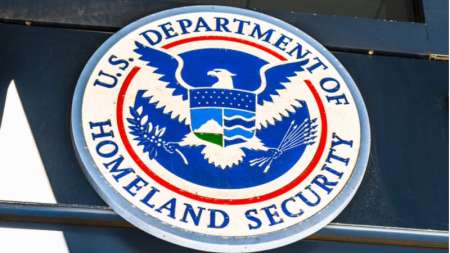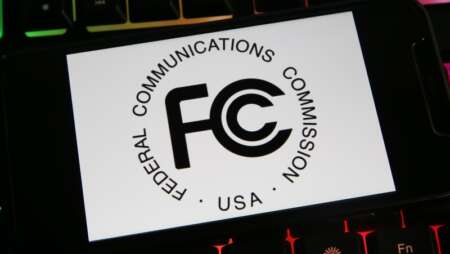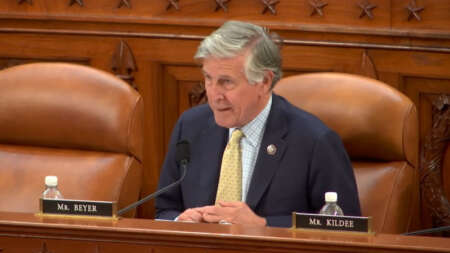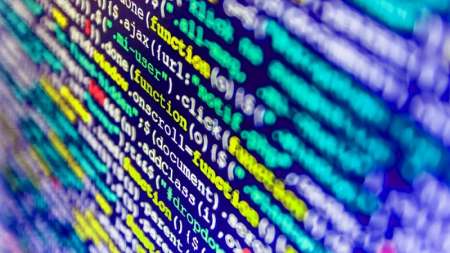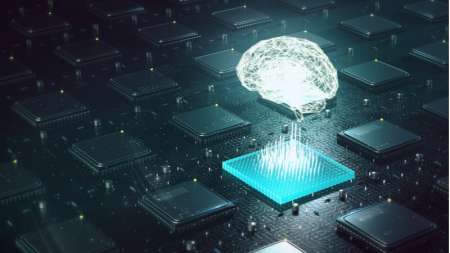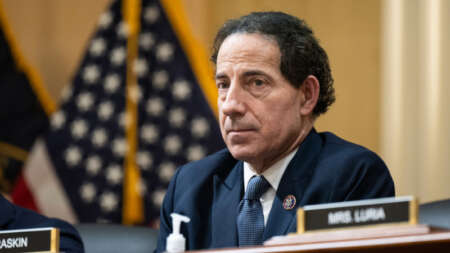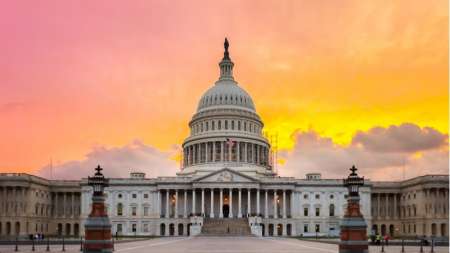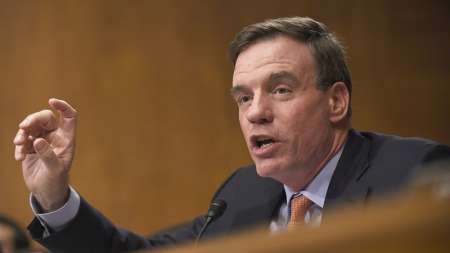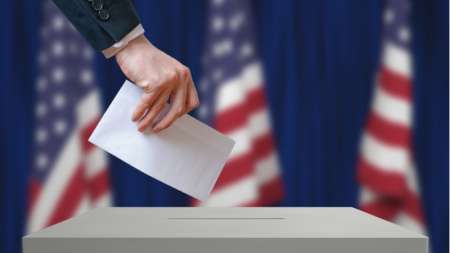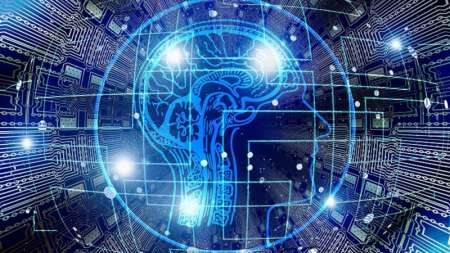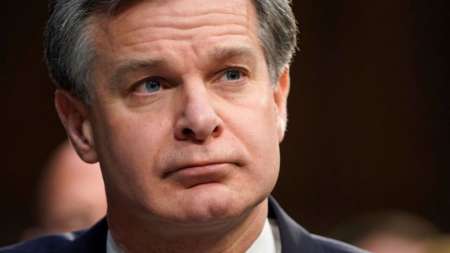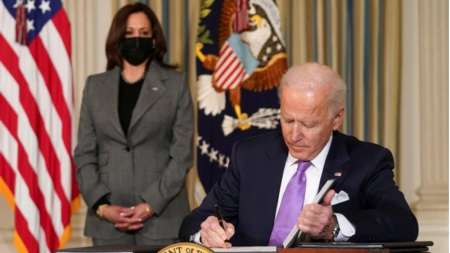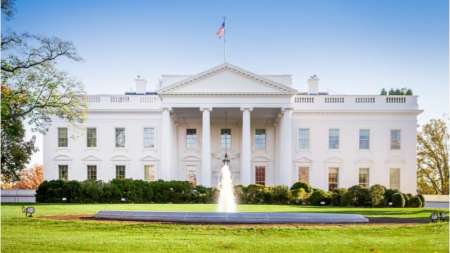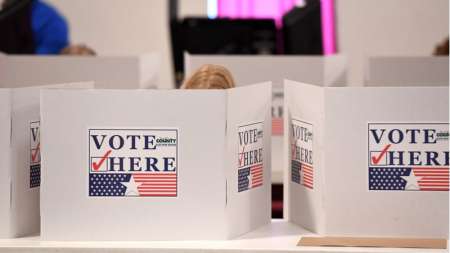The Department of Homeland Security (DHS) is expanding its use and testing of artificial intelligence (AI) technologies through a new roadmap and trio of pilot projects, the agency said today. […]
The Federal Communications Commission (FCC) voted on March 14 to create a voluntary cybersecurity labeling program for wireless internet of things (IoT) devices including home security cameras, internet-connected appliances, fitness trackers, garage door openers, and baby monitors. […]
The Department of Defense (DoD) has issued a final rule with revisions to the eligibility criteria for the voluntary Defense Industrial Base (DIB) Cybersecurity (CS) Program, greatly expanding the number of DIB companies that can participate in the program. […]
With the House AI Task Force set to hold its first meeting today on Capitol Hill, Rep. Don Beyer, D-Va. – one of the 24 members on the task force – laid out his top three goals for pursuing legislation that impacts the technology. […]
The Biden-Harris administration approved a secure software development attestation form on Monday, taking a crucial step towards ensuring Federal contractors provide secure products to the Federal government. […]
MeriTalk recently sat down with Tifani O’Brien, vice president and AI/machine learning accelerator lead at Leidos, to discuss how agencies can overcome barriers and build trust in AI to reap the benefits the technology can deliver. […]
The Federal government should provide economic incentives such as tax deductions or Federal grants to critical infrastructure providers and other organizations that adopt cybersecurity best practices, the National Security Telecommunications Advisory Committee (NSTAC) said in a March 7 report. […]
As the Department of the Navy looks to enable better and faster decisions for warfighters, Chief Information Officer (CIO) Jane Rathbun said the service branch is infusing AI at the edge to improve decision-making. […]
Reliable weather forecasts can save lives, and the National Oceanic and Atmospheric Administration (NOAA) is looking to cutting-edge technologies such as AI and cloud computing to improve its forecasting system and models. […]
When FITARA was first launched in November 2015, the Department of Education received a big fat “F” on its scorecard – denoting that the agency was failing across its IT and cyber categories. […]
House Oversight and Accountability Committee Chairman James Comer, R-Ky., and Ranking Member Jamie Raskin, D-Md., introduced legislation today which would focus government resources on increasing transparency, oversight, and responsible use of Federal AI systems. […]
Rep. Jay Obernolte, R-Calif., chairman of the newly formed House AI Task Force, said Tuesday that his goal is to create a regulatory framework for AI “that then we can hang various pieces of legislation on.” […]
The intelligence community (IC) has a data challenge — specifically overflowing streams of data — and artificial intelligence (AI) technologies could be a solution to meeting that challenge. But to leverage that solution the IC needs to format data so that it’s receptive in AI-driven solutions, a top intelligence official said today. […]
As Americans headed to the polls this “Super Tuesday,” Sen. Mark Warner, D-Va., expressed his concerns surrounding election security this year, especially as AI technology is making it easier for adversaries to deceive voters. […]
A senior official with the Cybersecurity and Infrastructure Security Agency (CISA) said today that the agency had not seen as of late morning any credible cybersecurity-related threats to “Super Tuesday” election operations around the country. […]
The Energy Department’s (DoE) new Office of Critical and Emerging Technologies is seeking information on the potential for AI technology to improve electric grid infrastructure and provide clean energy to all Americans. […]
Global tech trade association ITI released several policy actions last week that it suggests Congress and the Biden administration should focus on in 2024 to ensure the United States remains a global leader in technology and innovation, with AI being top on the list. […]
Following a nine-month pilot effort, the Pentagon today officially launched a new model for measuring the cyber readiness of its main network defense command — marking a shift from compliance to operational readiness. […]
In the 2024 election, the United States is likely to face more complex threats as adversaries continue to adopt artificial intelligence and other technological advancements to enhance attack capabilities, FBI Director Christopher Wray warned on Thursday. […]
Tech policy experts on Capitol Hill said Thursday that the recent AT&T outage across the nation showed the importance of the resiliency of America’s critical infrastructure. […]
The Department of Energy’s (DoE) Office of Cybersecurity, Energy Security, and Emergency Response (CESER) announced this week the allocation of $45 million for 16 projects aimed at developing new technologies to prevent cyberattacks and reduce energy disruptions from cyber incidents. […]
President Biden plans to sign an executive order (EO) today that aims to protect Americans’ sensitive data from “countries of concern,” the White House announced in a Feb. 28 fact sheet. […]
The Chair of the Senate Select Committee on Intelligence expressed concerns today that the United States is not prepared to fight foreign interference in the 2024 presidential election cycle, particularly when it comes to AI misuse. […]
As Federal agencies are looking to improve customer experience (CX) across government, government officials at the Feb. 22 Digital Transformation Summit hosted by ACT-IAC and Carahsoft shared some of the ways they’re driving towards that goal, including through website modernization. […]
The White House Office of the National Cyber Director (ONCD) released a report today calling on the technical community to proactively reduce the attack surface in cyberspace by adopting memory safe programming languages and developing better cyber diagnostics. […]
The National Institute of Standards and Technology (NIST) has established a two-year partnership with the nonprofit Engineering Biology Research Consortium (EBRC) to secure biotechnologies from risks associated by artificial intelligence (AI) systems. […]
As government officials are whipping up their digital transformation recipes, some Federal technology experts – or should we say chefs – shared their secret ingredients at the Digital Transformation Summit hosted by ACT-IAC and Carahsoft on Feb. 22. […]
The Cybersecurity and Infrastructure Security Agency (CISA), Environmental Protection Agency (EPA), and FBI published a joint fact sheet on Feb. 21 outlining the top cybersecurity actions water and wastewater systems sector (WWS) entities can take to improve their cyber resiliency. […]
Cybersecurity services provider CrowdStrike is taking a look into 2024 and seeing plenty of work to be done defending against sophisticated attacks driven by artificial intelligence technologies, along with defending the integrity of elections. […]
The Commerce Department’s National Telecommunications and Information Administration (NTIA) component said today it will soon be asking for public comment on the “risks, benefits, and potential policy” of open-weight artificial intelligence models. […]

